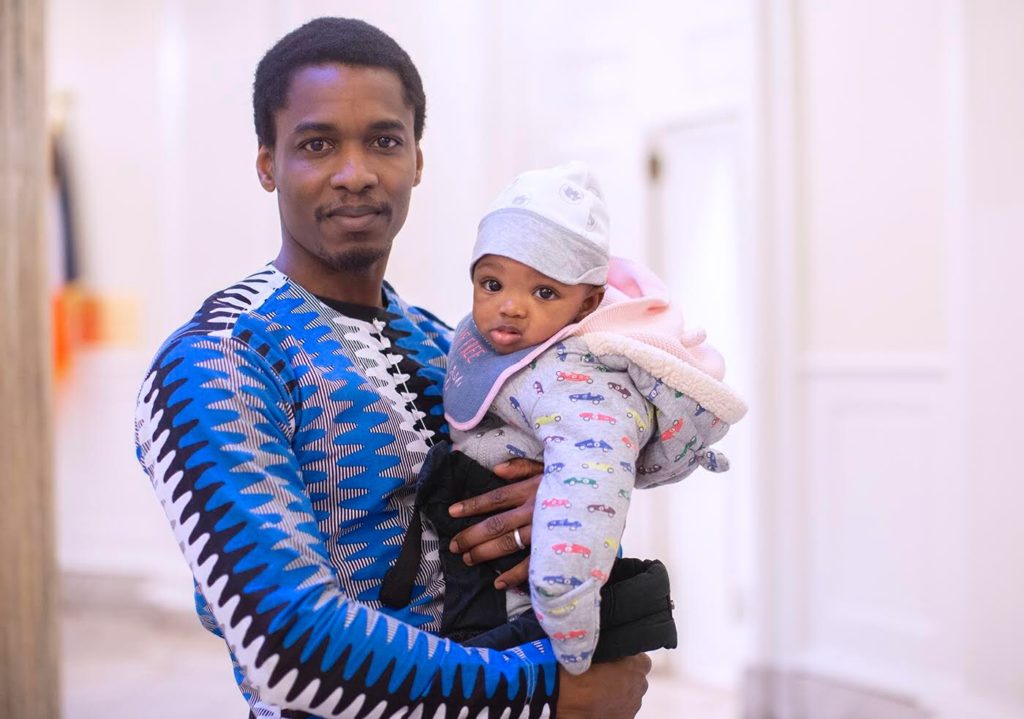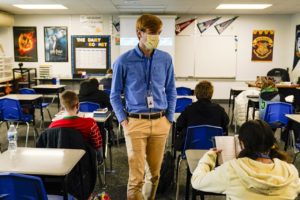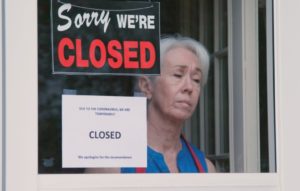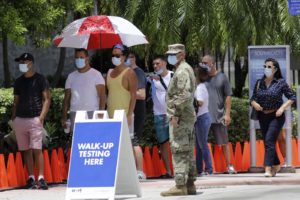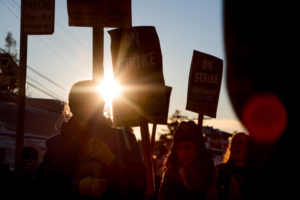Like colleges and universities across the country, the City University of New York (CUNY) has taken extreme measures to deal with the perceived economic fallout of the Covid-19 crisis. Though it is still uncertain whether the fall enrollments will be affected by the pandemic, and while Governor Andrew Cuomo has yet to cut funding to CUNY in the current budget, the university has taken preemptive measures to reduce payroll budgets and several CUNY colleges, such as John Jay, have effectively fired all of their semester to semester adjunct faculty. One of those fired faculty members, Sami Disu, also happens to be a member of Rank and File Action (RAFA), a militant rank and file organization within the Professional Staff Congress Union (PSC CUNY) fighting to build a more militant union and more just university. Below we talk with Sami about his layoff, his experience with the PSC CUNY union leadership, and the current RAFA campaign to defeat layoffs and tuition hikes.
Sami, Can you tell us a little bit about your job at CUNY?
I teach courses concerning themes of race and justice in the Africana Department at John Jay College of Criminal Justice including Environmental Racism (AFR317) and African American Journeys (AFR239). However, I am also what you would call an adjunct activist and I have been heavily involved in the campaign for adjunct wage equity under the $7K or Strike campaign and I am a member of the Free CUNY campaign which aims to restore free tuition at CUNY and other investments to ensure enrolled students can successfully finish their higher education. I also teach Contemporary African Politics (AFPRL 307) at Hunter College for two semesters now, although I received a letter of non-reappointment from them last week.
How do you feel about the administration’s response to the COVID-19 epidemic so far? Do you think they have taken the right steps to protect students and faculty?
Like other institutions of higher education and various levels of government responses to the pandemic, I honestly believe CUNY was slow to act decisively in bringing an end to classroom instruction on the campuses and transitioning them to distance learning. In addition, it took even longer for college workers to be allowed to work from home and for the campuses to be fully shut down. That was a very unfortunate pace of action as I’m sure the delay resulted in avoidable coronavirus infections and, potentially, deaths. There appeared to be significant delays in providing access to learning devices to students across CUNY, which forced administrators to issue a second week long “recalibration break” disruption in an attempt to issue the laptops to students. Students at John Jay College who needed learning devices had to physically come onto campus to receive a loaner learning device which was also unfortunate because they should have been mailed to them to reduce risk of infection. So, no, I have witnessed a cascading series of pandemic response failures that we need to learn from and avoid in the future.
And what about the union, the Professional Staff Congress (PSC CUNY); what do you think of their response to the pandemic?
The PSC like CUNY administration, New York City, State and the federal governments were all slow in their own respects to fully acknowledge the severity of the pandemic and to push for closing down the campuses and transition to distance learning. There is too much blame to go around on this question and I think it’s fair to say that PSC was caught flatfooted because there were college workers, including students who were working on campuses even after transition to distance learning. I think it was the proper role of PSC to have been quicker to spring into action and build pressure on CUNY management to stop requiring workers to come to the campuses.
But, as an adjunct who has already received a non-reappointment letter from Hunter College, I am most focused on PSC’s failure to mobilize more forcefully to prevent the layoffs that are happening now. On two occasions in the last week, the PSC has voted against resolutions to withhold grades to prevent the layoffs even though Rank and File Action is fully engaged on a grade pledge campaign and Brooklyn College PSC chapter has asked professors to withhold until the deadline. I think that is the largest failure in our union’s responsibilities to properly serve the membership since this pandemic began.
It recently came to light that departments across the university have already begun or plan to lay off thousands of adjunct employees and department assistants. Can you tell us a little bit about the details of that?
The full picture of cuts to adjunct personnel at CUNY is still getting clearer, but what we know is that CUNY central issued a directive to all CUNY colleges instructing them to lay off, enmasse, adjuncts on semester-to-semester contracts who comprise the majority of CUNY faculty. I have already received my non-reappointment letter from Hunter College, but it appears most adjuncts who are expecting to be laid off at John Jay College of Criminal Justice will receive their non-reappointment notices by May 29th just after the grades submission deadline for faculty. There are reports across CUNY that non-reappointment letters are being received by adjunct professors. There has been unusually high PSC faculty and CUNY worker participation in the various union assembly meetings including unemployment insurance webinars and so I can say that the whole PSC membership is on heightened alert and anticipating the worst right now.
What is the rationale that the administration is offering for these cuts and why do you think they are happening now? Is this a shock doctrine maneuver like we saw in New Orleans after Hurricane Katrina or something else?
The John Jay College provost letter which provided the first real understanding of numbers (437 adjuncts) that would lose jobs connected the cuts to state budget revenue declines. So, in a way I think the motivations for the cuts are similar to what we saw in New Orleans after Hurricane Katrina and other natural disasters due to costs of relief and recovery after a calamity. But, this should never be the case. It is already understood that student enrollment tends to go up during a recession so this CUNY policy of preemptively cutting jobs before we even know what the state declares is the dollar amount we need to cut is premature and callous to the lives of potentially thousands of adjuncts. Many of the adjuncts who stand to be terminated will also lose their health insurance even if CUNY must bend backwards to rehire some of them because enrollment exceeded expectations by the Fall semester.
You are a member of Rank and FIle Action, CUNY. Can you tell us a little bit about that group and your involvement in it? What is RAFA fighting for? What is its relationship to the broader PSC CUNY union?
I chose to be a member of $7KorStrike which has evolved into Rank and File Action because I was already an adjunct activist who was looking to engage vigorously on the adjunct wage justice issue. I was already well connected to the PSC union bureaucracy as I had been serving as an adjunct liaison for John Jay College of Criminal Justice and very involved in the union’s activities to highlight the decades-long issue of CUNY underfunding. But after a while, it became clear to me that while the PSC leadership was willing to launch demonstrations of membership’s power in protests, it was lacking in political will to mobilize the membership towards more significant job actions that would be capable of reversing austerity. So, I joined $7KorStrike which quickly became an organizing base for me because I was now surrounded by CUNY workers who were committed to building up and activating memberships across CUNY campuses to fight for adjunct wage equity and an end to austerity funding for CUNY. I could never look back, and I believe, I have remained longer at CUNY just to continue building with RAFA.
As you know, universities and colleges across the country are laying off faculty and staff at alarming rates. What, in your opinion, is the best way to defeat such layoffs and how can universities and colleges fight back against the coming wave of budget cuts sure to follow the pandemic?
What really needs to happen is a real change in Society’s thinking so that institutions of higher education are properly valued as indispensable centers of learning and job skills training within cities and states. For a long time now our societies have expressed the value of higher education to our economies, but too often that rhetoric is not matched with allocation of resources. So, there is a disconnect between the perceived critical roles of public higher education in society and the realities of underfunding, as implemented by the politicians who allocate resources. That’s why adjunct professors who are acknowledged as critical to the functioning of CUNY are easily laid off when any crisis happens.
In the case of CUNY, it has been common knowledge that educational racism lies at the core of New York State and City legislators’ motivations to keep underfunding the university system ever since Black and Puerto Rican students demanded open admissions in the 1960s. Underfunding will continue to the extent that the Black and Brown communities who depend on CUNY for higher education continue to accept the status quo.
One effective way for public university systems to preserve their adjunct faculty is to have a unionized workforce which is adequately mobilized to fight for its interests. This pandemic is happening in the midst of a teacher strike wave which is commendable because withholding labor and job actions are the serious types of mobilization which can help prevent even more layoffs. Unions for education workers are also realizing that their struggles are interconnected to other struggles outside educational settings because public disinvestment is the common theme they are all experiencing. So, university and college workers across the nation need to continue building alongside workers in other industries as part of coalitions seeking increased investments in public life and taxation of the rich to help plug the financial gaps that will inevitably be used to make the types of adjunct job cuts we are seeing at CUNY right now.
Lastly, and thank you for your time, how do you think the Covid-19 pandemic is going to affect higher education? Is there hope for a better system, or are we going to be faced with decades of defensive battles just to stay alive? How can faculty take advantage of this moment to change the tide of the struggle?
I am hopeful that the course for public higher education in New York City will change for the better due to increased awareness of what CUNY means to the City’s health and economy during the pandemic. CUNY’s faculty really meet the description of essential workers because they have performed superbly in facilitating an abrupt transition to online-based distance learning, even though we haven’t been paid for the numerous unpaid hours of extra work that came with it. I’m sure there have been hundreds of illnesses and deaths of CUNY’s workers and students and it is very commendable that faculty and staff have successfully facilitated the uninterrupted studies of hundreds of thousands of students. When you look at how some CUNY college workers have launched their own campaign to save adjunct jobs like RAFA’s grade pledge, I am hopeful that some are clearly ready to fight.
But, the threats to public higher education that CUNY provides are significant and I think we should all continue to pay close attention to Gov. Cuomo’s ideas to reimagine education in partnership with the Bill and Melinda Gates Foundation. As a delegate at Professional Staff Congress, I can tell you the union is paying close attention to this development as we know that fiscal crises are a perfect time to speed up privatization of public education in general. We can’t afford to be caught off guard anymore during the pandemic because very important decisions on how the university system will adopt increased roles of technology in reopening the campuses are being made right now.


